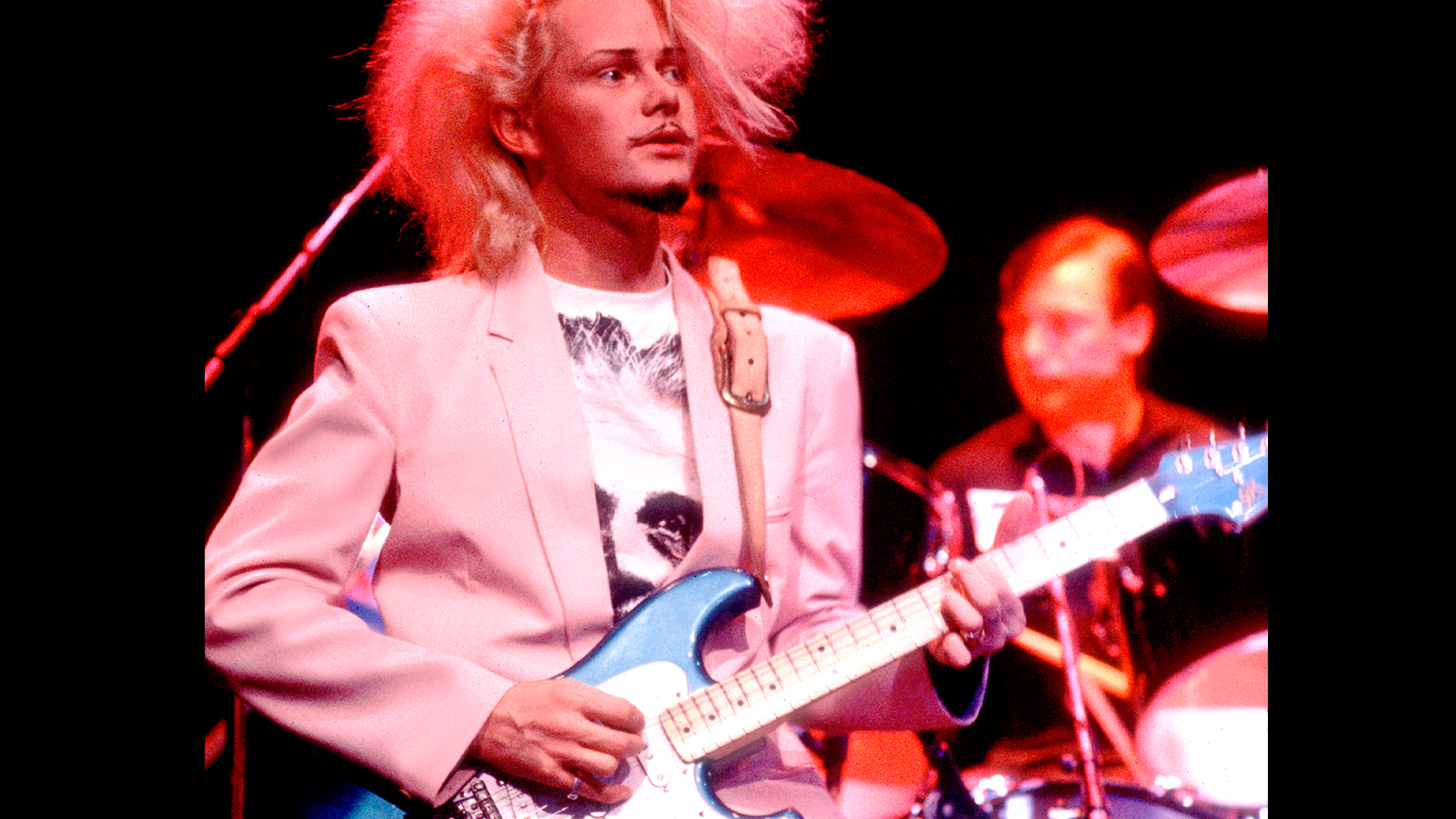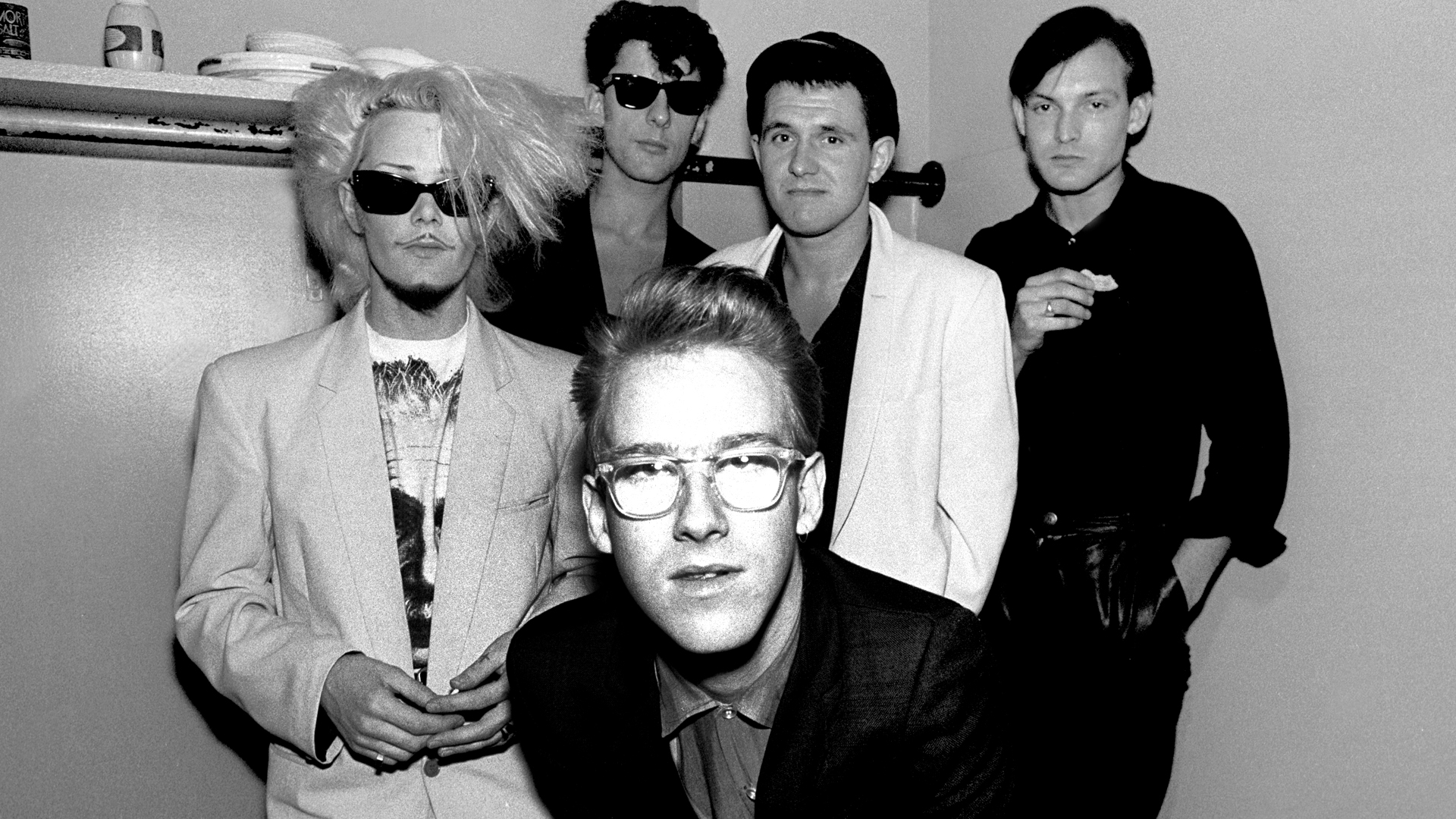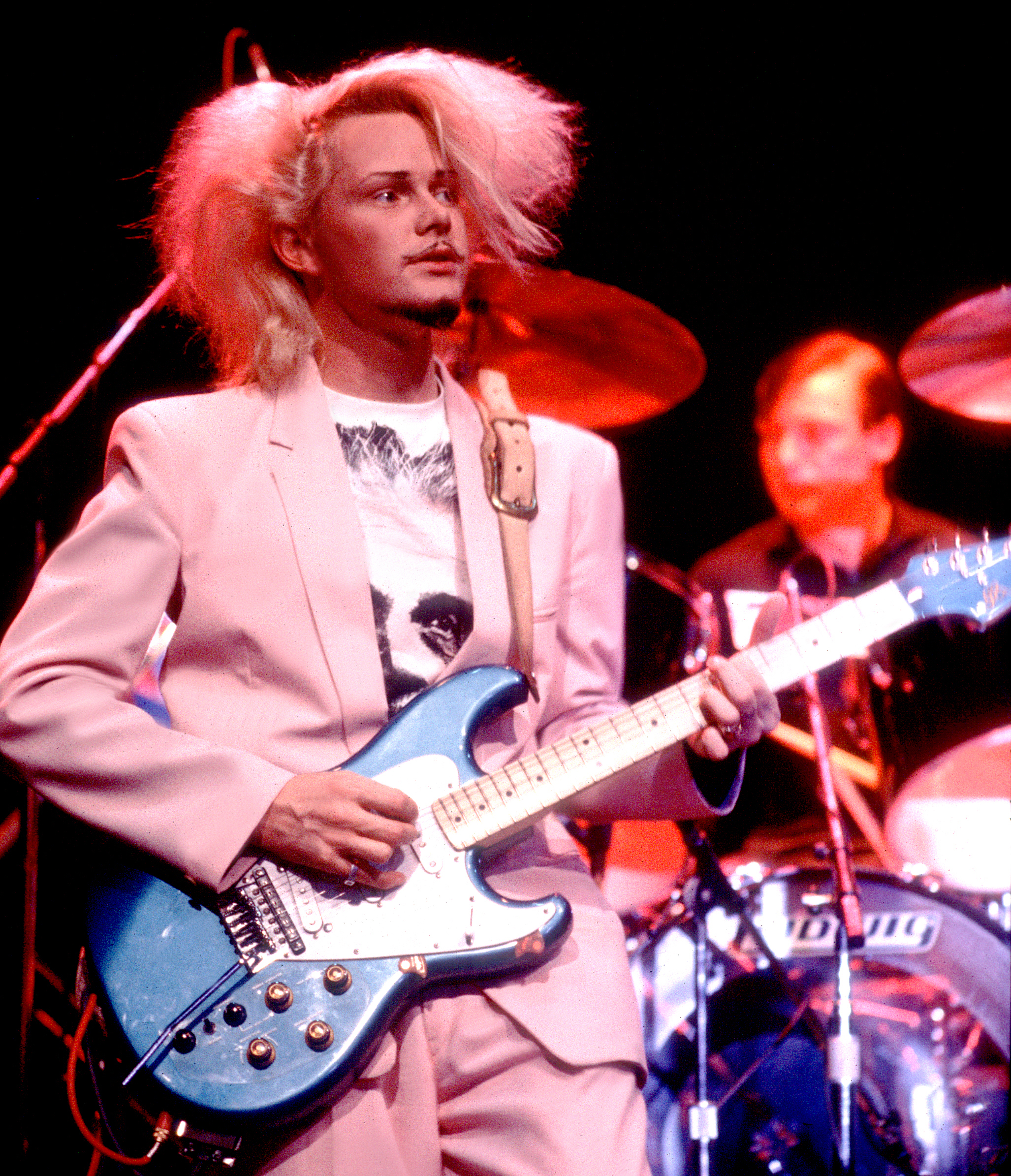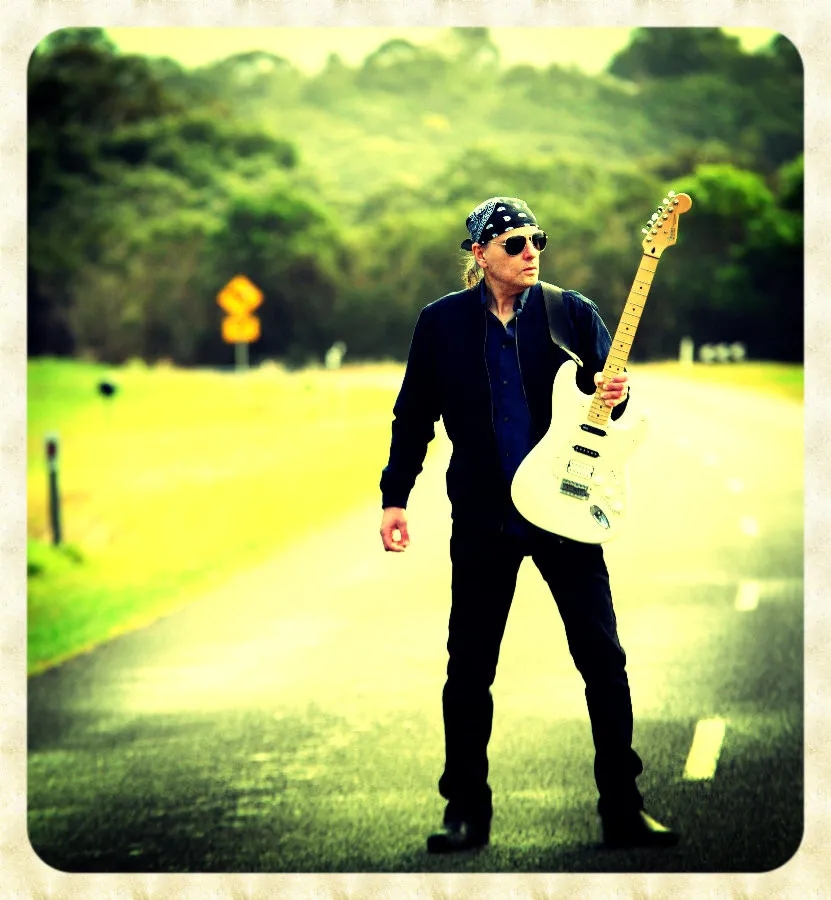“He didn't like using effects. He'd put an amplifier in a bathroom and place a mic down the hall to get natural reverb. He might even fill the room with cardboard boxes.” Why there are no guitar effects on the Modern English hit “I Melt WIth You"
Gary McDowell says the group's producer refused to use artificial reverb or delay on the pop group's 1982 breakthrough single

All the latest guitar news, interviews, lessons, reviews, deals and more, direct to your inbox!
You are now subscribed
Your newsletter sign-up was successful
For English post-punk rockers Modern English, it was a case of being at the right place at the right time. When the group released their ebullient 1982 single “I Melt With You,” it got a lukewarm response. That changed when the nascent MTV network placed the song’s music video on heavy rotation, launching it into the Billboard Hot 100 chart.
“MTV had just started,” recalls the group's guitarist, Gary McDowell. “They liked the video, so they put it in heavy rotation — three times a day! Suddenly, in one week, we went from playing small clubs for a couple hundred people to touring across the States and playing bigger venues. It was just a run of good luck that happened on account of all that.”
Their serendipity had actually begun much earlier, when the band began jamming on a riff of McDowell's in their London rehearsal space. “I had this nice, happy sort of riff that was twisted in way,” he explains. “I wanted it to be a jangly pop song but with avant-garde verses in it, in a Frank Zappa or Tom Waits sort of vein.”
Inspiration for the lyrics came quickly courtesy of the daily news. The Cold War was in full swing, and the threat of nuclear annihilation loomed large in the headlines.
“The song fits perfectly the time of when it was written,” McDowell says. “We’d just moved out of a squat and were living in cheap accommodation in the middle of London. The Falklands War was kicking off, so for days we saw an endless stream of army traffic going off to Dover, the main route out of London. And it was at that time that Rob [Grey, vocalist] wrote the lyrics, which are about pushing the button and causing a nuclear explosion. That was the root of it. It was basically a love song about a nuclear bomb going off.”
But the band's oddball song about love in the time of mutually assured destruction was about to get a makeover. The group had tapped producer Hugh Jones to produce their sophomore album, 1982's After the Snow, and he quickly made his desire for a hit clear to the young group.
“Hugh liked the song a lot but said, 'We need to keep this straight, so let me take it in my direction,’ " McDowell recalls. "He rearranged it, took the avant-garde bit out, replaced it with a regular verse and stuck in the chords. We didn’t like where he had taken it, as it was a bit more commercial, but we went with it, and I'm glad we did. It ended up being a song that has allowed us to keep going ever since.”
All the latest guitar news, interviews, lessons, reviews, deals and more, direct to your inbox!
Jones was also meticulous in his organic approach to capturing McDowell’s guitar sounds, shunning all matter of effect pedals. “Hugh had lots of ways of recording,” McDowell explains. “He preferred capturing natural sounds. We never used any distortion pedal, nor any pedals for that matter. He didn't like using any effect units. He'd put an amplifier in a bathroom and put a microphone down the hallway to get natural reverb. He'd record things with different ambiance around them — like an acoustic would be done in a tiled room or done in a softer ambient room. He might even fill the room up with cardboard boxes, or he might try recording outside.

“An amp for example, would be driven in a different way, where it would overload or distort naturally. Or it would be clean and punchy, with a lot of midrange. He was always after natural sounds as opposed to using devices."
McDowell says Jones' approach extended to recorded performances as well. "If you wanted to double track it, you’d double track it. He didn’t put it through an ADT [Automatic Double Tracking] device — he'd get you to double track it manually. And he would even slow the track down slightly to give it a chorus-y sound, so he could get a slight difference in tuning.”
McDowell studio setup was minimal. “I used the Les Paul which appears in the song’s video,” he says, "and two amps: a Peavey Heritage and a Roland Jazz Chorus JC-120, because the chorus that was in it was a lovely sound. I also used a 12-string acoustic guitar [also seen in the video] and then overdubbed a six-string acoustic in order to get the sound we wanted and to balance it out better. I can’t recall the models, but they weren’t anything special.”

Having become the band’s most popular song, "I Melt With You" is also one of the top 500 songs regularly played on U.S. radio. Modern English earned a Lifetime Achievement Award at the 2020 BMI Awards for reaching seven million plays on radio. “I Melt with You” was also given a further boost by its inclusion in the 1983 teen rom-com Valley Girl, and continues to be a choice cut for licensing in film and advertising, with placements in ads for everything from Burger King to — McDowell's favorite of the clips — Hershey's chocolate bars.
"They just seem to pick up on it,” he says. “I like that the song breaks down barriers, and puts us in different places.”
Joe Matera is an Italian-Australian guitarist and music journalist who has spent the past two decades interviewing a who's who of the rock and metal world and written for Guitar World, Total Guitar, Rolling Stone, Goldmine, Sound On Sound, Classic Rock, Metal Hammer and many others. He is also a recording and performing musician and solo artist who has toured Europe on a regular basis and released several well-received albums including instrumental guitar rock outings through various European labels. Roxy Music's Phil Manzanera has called him "a great guitarist who knows what an electric guitar should sound like and plays a fluid pleasing style of rock." He's the author of two books, Backstage Pass; The Grit and the Glamour and Louder Than Words: Beyond the Backstage Pass.


